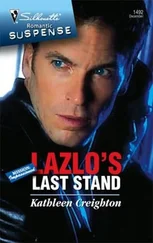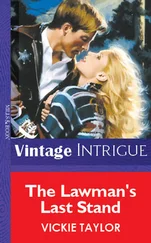“But you’re making judgments about people all the time-and if you don’t know the whole story…”
“My dear young woman, we are complete strangers, are we not?” he said. “Of course we will make shallow and quite possibly erroneous judgments about each other. I’m sure, for example, that you already have me pegged as an old git too, do you not?” She said nothing and he thought he detected a guilty smirk.
“But we have no right to demand more of each other, do we?” he continued. “I mean, I’m sure your life is very complicated, but I’m equally sure that I have no incentive to give it any thought and you have no right to demand it of me.”
“I think everyone has the right to be shown respect,” she said.
“Ah well, there you go.” He shook his head. “Young people are always demanding respect instead of trying to earn it. In my day, respect was something to strive for. Something to be given, not taken.”
“You know, you should be an old git,” she said with a faint smile, “but for some reason I like you.”
“Thank you,” he said, surprised. He was equally surprised to find that he felt pleased. There was something about this prickly young person that he also liked. He was not about to tell her so, however, in case she took it as an invitation to tell him more about her life. It was with a feeling of relief that he pulled up the car in front of Mrs. Ali’s shop and let his passengers out.
“Do they have comics?” asked George.
“I’ve got no money, so just be a good boy and maybe when we get home I’ll make you a cake,” said Amina.
“Good luck,” the Major called though the window as Amina paused in front of the shop, holding George by the hand. The face she turned to him was quite gray and frightened. He felt a dawning of suspicion that she was not going to the shop for a mere job interview. Whatever she was up to, she seemed more frightened of Mrs. Ali than she had been of the club secretary.
He had returned home and had put the tea in the pot but not yet poured a cup, when his uneasiness about dropping the strange young woman and her son on Mrs. Ali’s doorstep was compounded by the horrible sensation that it was the third Thursday of the month. He went to the calendar to check and his fears were realized. On the third Thursday in every month, the bus company shifted all the afternoon buses to some mysterious other duties. Even the Parish Council had been unable to get a clear answer as to where they went. The company would only say it was a “rationalization” of service to allow “increased presence in underserved markets.” Since buses came to Edgecombe only every two hours on a normal day, the Major and others had voiced the opinion that the village was itself underserved, but the matter had not been resolved. While his neighbor Alice had suggested protests on the steps of the county hall, he and most of the other village leaders had been content to retreat to the comfort of their cars. Alec had even gone out and bought a four-wheel drive, claiming that he would regard it as a vital community resource now that buses could not be counted upon in an emergency.
The Major was sure that Amina had told George the truth when she said she had no money. He was certain she could not afford a taxi. With great reluctance, tinged with curiosity, he put the cozy on the pot and fetched his coat. He would have to at least offer to drive the pair back to town.
Through the distortion of the plate glass window he could see Mrs. Ali leaning against the counter as if she were slightly faint. Her nephew stood rigid, which was hardly unusual, but he was staring past the Major’s shoulder at some distant point outside the window. Amina looked down at her bright crimson boots, her shoulders sunk into an old woman’s hunch that telegraphed defeat. This was no job interview. The Major was just thinking about sneaking away again when he was accosted by a loud voice.
“Major, yoo-hoo!” He turned around and was greeted with the sight of Daisy, Alma, Grace, and Lord Dagenham’s niece, Gertrude, crammed into Daisy’s Mercedes with so many overstuffed and billowing bags and packages that they looked like four china figurines packed in a gift box. “So happy to have spotted you, you’re just the man we wanted to see,” added Daisy, as the four ladies did their best to emerge from the car without spilling their purchases into the street. It was not the most dignified scene. The Major held the car door for Alma and tried not to look at her plump knees as he bent to rescue a large yellow satin turban that had almost tumbled into a puddle.
“I see Alec is all taken care of,” he said.
“I’m so glad we spotted you,” repeated Daisy. “We couldn’t wait to tell you all about the exciting new plan we came up with,”
“It involves you!” said Alma, as if the Major should feel pleased.
“Major, we have been debating whether our folk dancing was enough to set the theme of our evening,” said Daisy. “Then this morning, while we were breakfasting at Lord Dagenham’s, we came up with a delightful proposition.”
“It was a lovely breakfast, Gertrude,” said Alma to the niece. “Such a delightful start to the day.”
“Thank you,” said Gertrude. “I’m more used to grabbing a bacon sandwich in the stables than entertaining other ladies. I’m so sorry about the kippers.”
“Nonsense,” said Alma. “Quite my own fault for gobbling them up so fast.”
“I was standing by to attempt the Heimlich, but I’m more experienced with horse choke.”
“Ladies, ladies,” said Daisy. “If we could stay on point?” She paused for effect. “We’ve settled on a series of scenes-very tasteful-and we were discussing how to make them relevant.”
“Oh, you tell him, Grace-it was partly your idea,” added Alma.
“Oh, no, no,” said Grace. She stood a little apart, shifting slightly from foot to foot. The Major found this nervous fretting irritating in an otherwise sensible woman. “We were just talking about local connections to India and I happened to mention your father. I didn’t mean to suggest anything.”
“My father?” asked the Major.
“If I might explain,” said Daisy, quelling Grace with a lifted eyebrow. “We were reminded of the story of your father and his brave service to the Maharajah. We’ve decided to do it in three or four scenes. It’ll be the perfect core of our entertainment.”
“No, no, no,” the Major said. He felt quite faint at the idea. “My father was in India in the thirties and early forties.”
“Yes?” said Daisy.
“The Mughal Empire died out around 1750,” said the Major, his exasperation overcoming his politeness. “So you see it doesn’t go at all.”
“Well, it’s all the same thing,” said Daisy. “It’s all India, isn’t it?”
“But it’s not the same at all,” said the Major. “The Mughals-that’s Shah Jehan and the Taj Mahal. My father served at Partition. That’s the end of the English in India.”
“So much the better,” said Daisy. “We’ll just change ‘Mughal’ to ‘Maharajah’ and celebrate how we gave India and Pakistan their independence. Dawn of a new era and all that. I think it’s the only sensitive option.”
“That would solve the costume problem for a lot of people,” said Alma. “I was trying to tell Hugh Whetstone that pith helmets weren’t fully developed until the nineteenth century, but he didn’t want to hear it. If we add an element of ‘Last Days,’ they can wear their ‘Charles Dickens’ summer dresses if they prefer.”
“Though ‘Last Days’ is what got us in trouble last year,” ventured Grace.
“We needn’t be so specific,” snapped Alma.
“Partition was 1947,” said the Major. “People wore uniforms and short frocks.”
Читать дальше












